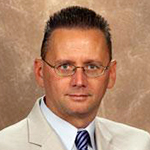The United States must take military action against Syria, even though it may not deter Syria or other “belligerent nations” from using weapons of mass destruction, suggests Krister Knapp, PhD, a senior lecturer in the Department of History in Arts & Sciences at Washington University in St. Louis.

“The Syrian army’s use of chemical weapons for the second time appears to have crossed President Obama’s ‘red line’ warning the Assad regime not to use weapons of mass destruction (WMDs),” Knapp says.
“The international community, led by the United States and backed by NATO, will likely form a ‘coalition of the willing’ to justify such action, and probably not seek a United Nations Security Council resolution because Russia and China, who support the Assad regime, would likely block it,” says Knapp, whose U.S. history courses focus on modern wars.
“Military action could range from several cruise missiles launched at the command and control units suspected of firing the chemical weapons to attacks against the regime itself and even Syrian infrastructure.
“It will not, however, likely involve a full scale, boots-on-the-ground invasion of Syria because the goal will be to punish the Assad regime for violating international law and humanitarian standards, not to embroil the U.S. in yet another war in the Middle East.
“Such action would also send a signal to other belligerent nations such as Iran and North Korea that the use of WMDs will not be tolerated by the international community.
“It would also be designed to restore some U.S. credibility in the region and around the world. However, while such action may be necessary, it remains to be seen whether it will achieve any of the desired results,” says Knapp, who is hosting a student discussion on Syria from 1-2:30 p.m. Sept. 6 as part of WUSTL’s International Relations Round Table, a group that regularly debates global issues.
“The conversation at the White House will likely focus on what to do if the strikes fail. And that is probably not a conversation that President Obama, who wants his foreign policy legacy to be ending two wars not starting a third, will want to have.”
Knapp is available for comment.